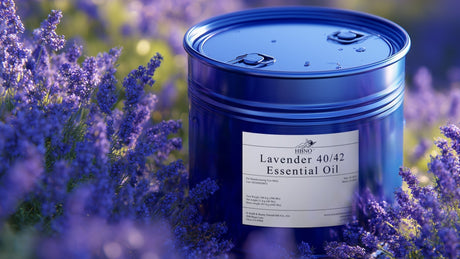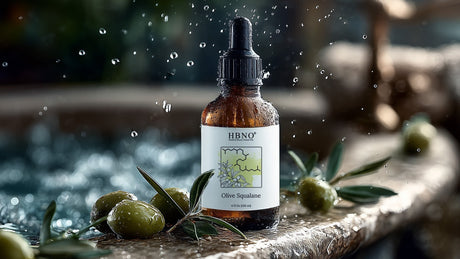Fleas are one of the most common pests that plague both cats and dogs. Not only are they a nuisance, but they can also cause serious health issues such as allergic reactions, skin infections, and in some cases, even anemia in pets. As pet owners, we strive to provide the best for our furry companions, often seeking out natural solutions for problems like Flea Infestations. Tea Tree Oil, with its antimicrobial properties, is one such solution that has been suggested as a natural flea treatment for pets. However, while tea tree oil may seem like an effective remedy, it's important to understand the potential risks and how to use it safely.
In this comprehensive guide, we will explore how tea tree oil works, its potential benefits and risks, and how to use it properly to treat fleas on cats and dogs. Additionally, we will discuss other natural alternatives for flea control, as well as tips on keeping your pets flea-free.
What is Tea Tree Oil?
Tea tree oil, also known as Melaleuca alternifolia, is an essential oil derived from the leaves of the tea tree, which is native to Australia. The oil is extracted through steam distillation and has a strong, fresh, medicinal scent. Tea tree oil has been used for centuries due to its powerful antimicrobial properties. It is known for its ability to kill bacteria, fungi, and viruses, which makes it a common ingredient in skincare products, household cleaners, and even natural insect repellents.
Tea tree oil is made up of several active compounds, including terpenes like terpinen-4-ol, which are believed to have insecticidal properties. These properties have led some pet owners to consider tea tree oil as a potential flea treatment. However, while tea tree oil's properties may theoretically be beneficial in eliminating fleas, it is crucial to be cautious when applying it to animals, as it can be toxic if not used properly.

The Benefits of Tea Tree Oil for Fleas
Tea tree oil has been touted as a natural flea treatment due to its insecticidal properties. Fleas are drawn to the warmth and scent of animals, and tea tree oil may help repel them with its strong aroma. The oil contains compounds that can disrupt the fleas' nervous system, potentially killing them or making the environment inhospitable for them. Some studies suggest that tea tree oil can help deter fleas, but its primary effectiveness is in repelling them rather than directly killing them.
Tea tree oil may also offer other benefits that make it attractive for flea treatment:
-
Antimicrobial properties: Tea tree oil is a known antimicrobial agent, which means it can help treat the skin irritation that often accompanies flea bites. It may help reduce itching and inflammation, providing relief to your pet's sensitive skin.
-
Soothing properties: For pets with flea allergies or irritated skin, tea tree oil can soothe inflamed skin, reduce redness, and support the healing process.
-
Natural alternative: Many pet owners prefer natural remedies for flea control because they are concerned about the potential side effects of chemical flea treatments, such as topical medications or flea collars. Tea tree oil offers an organic alternative to these harsher treatments.
The Risks of Using Tea Tree Oil on Pets
Despite the potential benefits, there are significant risks involved when using tea tree oil on pets, especially cats and dogs. It is crucial to understand that tea tree oil is toxic to animals, and improper use can lead to serious health issues.
-
Toxicity: Tea tree oil contains compounds that are toxic to pets when absorbed in large quantities. Cats and dogs lack the necessary enzymes to metabolize certain chemicals in tea tree oil, which can lead to poisoning if they ingest or absorb too much of the oil. This can occur if the oil is applied directly to the skin, licked off by the pet, or absorbed into the bloodstream.
-
Symptoms of poisoning: Exposure to tea tree oil can result in a range of symptoms, including:
-
Lethargy or weakness
-
Drooling or foaming at the mouth
-
Vomiting or diarrhea
-
Muscle tremors or seizures
-
Ataxia (loss of coordination)
-
Skin reactions such as redness, swelling, or irritation
-
In severe cases, tea tree oil poisoning can lead to coma or even death.
-
-
Risk of ingestion: Pets often lick their fur, especially after topical treatments, which increases the risk of ingesting the oil. This can be particularly dangerous if tea tree oil is used in its undiluted form or in high concentrations.
-
Allergic reactions: Some pets may be allergic to tea tree oil, and even a small amount of exposure can lead to an allergic reaction. If you notice any signs of an allergy, such as excessive scratching, swelling, or redness, discontinue use immediately and consult a veterinarian.
Given these potential risks, it is essential to use tea tree oil cautiously and follow strict safety guidelines when considering it for flea treatment.
How to Use Tea Tree Oil Safely on Pets
If you decide to use tea tree oil as a flea treatment for your pet, it is important to follow these guidelines to ensure safety:
-
Consult a veterinarian: Before using tea tree oil or any other essential oil, consult your veterinarian to ensure it is safe for your pet. Your veterinarian can recommend the appropriate dosage and help you assess the risks based on your pet's health and size.
-
Dilution is key: Always dilute tea tree oil before applying it to your pet's skin. Undiluted tea tree oil can be harmful, so it's essential to mix it with a carrier oil, such as coconut oil, olive oil, or almond oil. A safe dilution is typically 1% tea tree oil to 99% carrier oil. For example, if you're using 1 teaspoon of carrier oil, add only one drop of tea tree oil.
-
Patch test: Before applying tea tree oil to your pet's body, perform a patch test to check for any allergic reactions or skin sensitivities. Apply a small amount of the diluted oil to a small patch of your pet's skin, and wait 24 hours to see if there are any adverse reactions, such as redness, swelling, or irritation.
-
Avoid sensitive areas: Never apply tea tree oil near your pet's eyes, mouth, or genital areas. These areas are particularly sensitive, and exposure to tea tree oil can cause irritation or injury.
-
Use sparingly: Only apply the diluted tea tree oil to areas that your pet cannot easily lick. If your pet licks the treated area, it can ingest the oil and suffer from poisoning. Focus on areas where your pet is less likely to reach, such as the back of the neck.
-
Monitor your pet: After applying tea tree oil, observe your pet closely for any signs of adverse reactions. If you notice any unusual behavior, such as vomiting, excessive drooling, or lethargy, contact your veterinarian immediately.
Alternative Natural Flea Treatments for Pets
While tea tree oil can be effective in repelling fleas, the risks associated with its use often outweigh the benefits. Fortunately, there are several other natural flea treatments that are safer and more effective for pets:
-
Lemon Spray: Lemons contain citric acid, which fleas find repellent. You can make a simple flea-repelling spray by boiling water and adding lemon slices. Once cooled, strain the mixture and place it in a spray bottle. Lightly mist your pet's coat with the solution, avoiding sensitive areas like the eyes and face.
-
Apple Cider Vinegar: Apple cider vinegar is another natural flea repellent. It helps balance the pH of your pet's skin, making it less appealing to fleas. Mix equal parts of water and apple cider vinegar in a spray bottle and lightly spray your pet's coat. Be sure to avoid any open wounds or irritated skin, as vinegar can sting.
-
Herbal Flea Collars: Herbal flea collars are a natural alternative to chemical flea collars. They are infused with essential oils such as lavender, citronella, and eucalyptus, which help repel fleas. These collars are a non-toxic option for flea control and can be worn alongside your pet's regular collar.
-
Regular Grooming: One of the best ways to prevent fleas is by regularly grooming your pet. Use a flea comb to remove fleas, flea eggs, and larvae from your pet's coat. Bathe your pet regularly with a flea-friendly shampoo to keep their coat clean and free of fleas.
-
Essential Oil Blends: If you are committed to using essential oils, consider creating a safe blend of essential oils specifically designed for flea control. Oils like lavender, cedarwood, and peppermint are known to repel fleas without being as harsh as tea tree oil. Always dilute essential oils before use, and consult with a veterinarian to ensure they are safe for your pet.

Commercial Flea Treatments
While natural remedies can be effective for mild flea infestations, severe cases may require stronger interventions. There are several commercial flea treatments available that are designed to kill fleas and prevent re-infestations. These include oral medications, topical treatments, and flea collars. Before using any commercial product, consult with your veterinarian to determine which treatment is best for your pet.
How to Prevent Fleas from Returning
Preventing fleas from returning is just as important as treating an existing flea problem. Here are some steps you can take to keep fleas at bay:
-
Keep your home clean: Fleas can infest your home, not just your pet. Regularly vacuum your home, especially areas where your pet spends a lot of time. Wash your pet's bedding, toys, and other items frequently to remove flea eggs and larvae.
-
Treat your yard: If your pet spends time outdoors, treat your yard with natural flea-repellent plants such as lavender or eucalyptus. You can also use diatomaceous earth to kill fleas in the yard.
-
Check your pet regularly: Perform regular checks on your pet for fleas, especially during flea season. Use a flea comb to check for fleas and remove any that you find.
Conclusion
Tea tree oil may offer some benefits as a natural flea repellent, but its risks far outweigh its potential advantages when used on cats and dogs. The toxicity of tea tree oil, especially when used improperly, makes it a less-than-ideal solution for flea control. Always consult with your veterinarian before using any essential oil, and consider safer alternatives such as lemon spray, apple cider vinegar, or herbal flea collars. With regular grooming, proper flea prevention, and the right flea treatments, you can keep your pets happy, healthy, and flea-free.
If you're interested in buying high-quality, organic tea tree essential oil for personal or professional use, be sure to explore options from reputable suppliers offering Organic Tea Tree Essential Oil wholesale. These oils are sourced from trusted manufacturers and can be used safely in products like shampoos, soaps, and sprays for flea control.
Collaborate with a Private Label Brand Solutions focused on premium-quality formulations and consistency.



